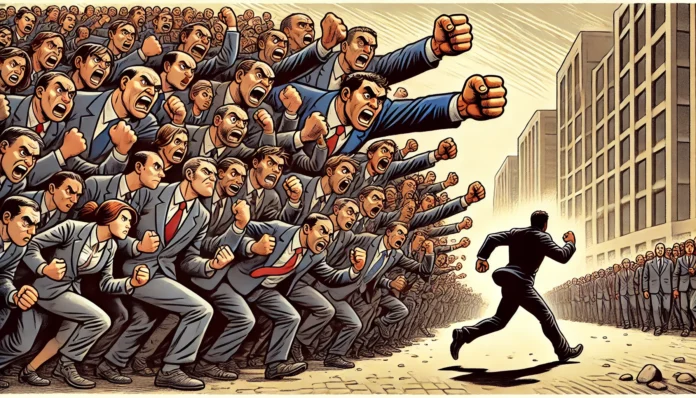Religious Privilege: Double Standards for Atheists vs Believers
The United States of America is a nation that prides itself on freedom of belief, the reality for nonbelievers is often far from equal. While the United States Constitution guarantees the right to religious freedom, the social landscape tells a different story—one where religious privilege is deeply embedded, and atheists are frequently marginalized. This double standard is not just a matter of perception; it is a lived experience for millions of Americans who identify as atheists, agnostics, or otherwise nonreligious.
The Social Cost of Open Atheism
Public expressions of religious faith are often met with respect, admiration, or at the very least, acceptance. Politicians invoke God in speeches, athletes thank a higher power after victories, and religious holidays are celebrated nationwide. In contrast, open expressions of atheism are frequently met with suspicion, discomfort, or outright hostility. According to a 2019 Pew Research Center study, nearly half of Americans say they would be less likely to vote for a presidential candidate who does not believe in God. This distrust persists despite the growing number of Americans who identify as religiously unaffiliated.
The stigma attached to atheism can have real-world consequences. Atheists have reported discrimination in the workplace, in schools, and even within their own families. There are numerous documented cases where nonbelievers have faced social exclusion, harassment, or legal challenges simply for expressing their views. In some American states, outdated laws still technically bar atheists from holding public office, even if these laws are unenforceable under the Constitution.
Religious Privilege in Public Life
Religious privilege manifests in both subtle and overt ways. Consider the prevalence of religious symbols and language in government spaces: “In God We Trust” is printed on currency, legislative sessions often begin with prayers, and religious organizations enjoy tax exemptions that are not extended to secular groups. These practices send a clear message about whose beliefs are valued and whose are not.
When religious individuals speak about their faith, they are often seen as moral, trustworthy, and community-oriented. By contrast, atheists are sometimes viewed as lacking a moral compass, despite evidence to the contrary. Studies have shown that morality is not exclusive to religious belief; secular individuals are just as capable of ethical behavior and altruism. Yet, the stereotype persists, reinforcing the double standard.
Education and the Double Standard
Schools are another arena where religious privilege is evident. While the Supreme Court has ruled against school-sponsored prayer, students and teachers who openly discuss their religious beliefs are often accommodated or even encouraged. Meanwhile, students who identify as atheists or question religious teachings may face isolation or bullying.
Textbooks and curricula frequently reflect a Judeo-Christian worldview, and science education can become a battleground when topics like evolution are challenged on religious grounds. Atheist and secular students who advocate for evidence-based education may find themselves at odds with both peers and educators.
Legal and Political Disparities
Despite constitutional protections, legal and political systems often reflect religious biases. For example, religious organizations are granted broad exemptions from certain laws, such as those related to employment discrimination or healthcare mandates. Secular organizations rarely receive similar consideration. In the political arena, candidates are expected to profess religious faith, and open atheists are virtually absent from high office.
Even in the judiciary, religious privilege can influence outcomes. Courtrooms may display religious symbols, and oaths are often sworn on religious texts. While alternatives exist, the default assumption is that religion is the norm and atheism is the exception.
Media Representation and Cultural Narratives
Media portrayals of atheists often reinforce negative stereotypes. Atheist characters are rare in film and television, and when they do appear, they are frequently depicted as cynical, untrustworthy, or morally ambiguous. By contrast, religious characters are more likely to be shown as virtuous or heroic. This imbalance shapes public perceptions and perpetuates the double standard.
Cultural narratives also play a role. Phrases like “There are no atheists in foxholes” suggest that belief in God is universal in times of crisis, dismissing the experiences of nonbelievers. Such narratives marginalize atheists and reinforce the idea that religious faith is a prerequisite for resilience or morality.
Global Perspective: Atheism and Discrimination Worldwide
The double standard is not unique to the United States. Around the world, atheists face legal penalties, social ostracism, and even violence. According to Human Rights Watch, some countries impose harsh punishments for blasphemy or apostasy, including imprisonment or death. While the situation in the U.S. is less severe, the underlying principle is the same: religious belief is privileged, and nonbelief is penalized.
Moving Toward True Equality
Challenging religious privilege does not mean attacking religion; it means advocating for a level playing field where all beliefs, including nonbelief, are treated with equal respect. This requires confronting stereotypes, revising discriminatory laws and policies, and fostering a culture of genuine pluralism.
Nonbelievers deserve the same respect, rights, and social acceptance as people of faith. Recognizing and addressing the double standard is a crucial step toward a more just and inclusive society—one where freedom of belief truly means freedom for all.

